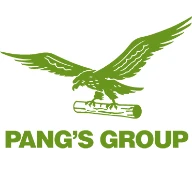Plywood is a versatile wood product with countless applications in construction, furniture, and more. This article will guide you through everything you need to know about plywood, focusing on film faced plywood - exploring its thickness, size, process, and ideal uses. Whether you're a seasoned professional or new to the plywood world, this guide is your one-stop resource for understanding this essential building material. You will learn how our commitment to high-quality products makes us a trusted supplier for all your plywood needs.
What is Plywood? A Comprehensive Description
Plywood is a wood panel product manufactured from thin layers of wood veneer that are glued together with adjacent layers having their wood grain rotated up to 90 degrees to one another. This layering technique is known as cross-graining and offers a lot of benefits, including improved strength, dimensional stability, and resistance to warping. The number of layers, the thickness of each layer, and the type of wood used all influence plywood characteristics. At Jsylvl, we take pride in offering a wide range of plywood products, ensuring that our customers get the perfect material for their specific needs.
The veneer layers, also known as plies, are typically glued together under heat and pressure in a press. This process ensures a strong and uniform bond throughout the plywood sheet. The core of the plywood can vary, with options including solid wood core, veneer core, or composite core. Each type of core affects the plywood's performance and cost.
Our plywood products are designed to meet diverse needs, ranging from construction to furniture manufacturing.

Image Alt: film faced plywood 16mm
Decoding Film Faced Plywood: What Makes it Unique?
Film faced plywood is a specialized type of plywood that is coated on both sides with a resin-impregnated paper film. This film provides several advantages over standard plywood, making it ideal for specific applications. The film-faced plywood has a smooth, smooth concrete casts, and waterproof surface. At Jsylvl, we offer film faced plywood with a phenolic film faced plywood, ensuring durable and resistant surface.
Film faced plywood is frequently used in situations where moisture resistance and surface protection are critical. It is commonly used in construction, particularly for concrete formwork (also known as shuttering plywood), where it can withstand repeated use and exposure to moisture. The film also provides an excellent surface for paint or other finishes. This kind of plywood enhances the plywood's overall performance.
The Importance of Plywood Thickness and Size Selection
Choosing the right plywood thickness and size is crucial for ensuring the structural integrity and performance of any project. The thickness affects the plywood's strength, stiffness, and load-bearing capacity. The most common plywood thickness varies from 3mm to 25mm or even more. The size of the plywood sheet is another important consideration, with standard sizes varying depending on regional standards. At Jsylvl, we offer a range of plywood sizes and thicknesses, helping you find the perfect fit for your project. The size affects how easily you can handle the plywood during construction and transportation.
For construction application like concrete, plywood with thickness greater than 18mm is frequently utilized to provide good load-bearing ability. At Jsylvl, we offer a range of thickness for every application.
What is the Plywood Core, and Why Does It Matter?
The core of the plywood is the innermost layer, and it significantly affects the plywood's properties, including strength, stability, and cost. Common core types include:
- Veneer core: Made of layers of wood veneer. It provides good strength and stability.
- Composite core: The core often consists of particleboard or oriented strand board (OSB). This option can be more economical than a solid wood core.
The choice of core depends on the intended application.
At Jsylvl, we use a high-quality selection of cores to ensure that our plywood meets the highest standards of performance and reliability. The core helps the plywood resist moisture and stay durable.
Film Faced Plywood Applications: Where Can You Use It?
Film faced plywood has a wide range of applications due to its waterproof surface and durability. Some of the common applications include:
- Concrete formwork (shuttering plywood): Provides a smooth surface for casting concrete.
- Construction: Used for wall sheathing, roofing, and flooring.
- Furniture: Can be used in furniture parts, especially where moisture resistance is important.
- Transportation: Used in the manufacturing of railway wagons.
- Marine plywood: Due to its superior moisture resistance, it's ideal for shipbuilding and docks. We offer top-grade marine plywood at Jsylvl.
The smooth surface of film faced plywood ensures a clean and even finish in any of these applications.
The Film Faced Plywood Manufacturing Process: How It's Made
The manufacturing process of film faced plywood is a multi-step process that ensures the highest quality.
- Veneer preparation: Thin sheets of veneer are cut from logs.
- Drying: The veneers are dried to reduce their moisture content.
- Glue application: Veneers are coated with glue. The glue is a crucial element in plywood.
- Layering: The veneers are arranged in layers with alternating grain direction to increase strength and dimensional stability.
- Pressing: The layers are then pressed together under high pressure and temperature to create a strong bond. The press is a crucial element for all plywood types.
- Film facing: Once the plywood core is created, it is coated with a resin-impregnated paper film on both sides.
- Curing and finishing: The film is cured, and the edges are sealed for extra protection.
- Cutting and sanding: The plywood sheets are then cut to the desired size and undergo a final sand to ensure a smooth surface.
At Jsylvl, our manufacturing process is strictly controlled to ensure that every sheet of film faced plywood meets our high-quality standards. Our commitment ensures product superior quality.
Film Faced Plywood: Physical and Working Properties
Film faced plywood boasts several physical and working properties that make it a superior building material.
- High strength and stability: The cross-graining technique provides high strength and stability, making it resistant to warping, splitting, and cracking.
- Moisture resistance: The film coating makes it highly resistant to moisture, making it ideal for outdoor applications and humid environments.
- Durable surface: The film provides a durable surface that is resistant to abrasion, chemicals, and impacts.
- Easy to clean: The smooth surface is easy to clean and maintain.
- Easy working: Can be cut, drilled, and fastened with standard wood tools.
These properties make film faced plywood an excellent choice for various construction and industrial applications.
How to Ensure Plywood Quality?
Ensuring plywood quality involves several key factors:
- Wood species: The type of wood used for the veneer affects the strength, appearance, and durability of the plywood. Hardwood veneers are generally stronger than softwood veneers. At Jsylvl, we select only the best materials for our products.
- Glue quality: The type of glue used is crucial. Waterproof glue is essential for film faced plywood.
- Layering: Ensure that the veneers are properly layered with alternating grain direction to maximize strength and stability.
- Thickness and tolerances: The actual thickness should meet the standard.
- Film quality: For film faced plywood, the quality of the film is critical for moisture resistance and durability.
- Edge protection: Edge sealing is essential to prevent moisture intrusion.
We at Jsylvl conduct a thorough quality check throughout our manufacturing process to ensure that every product we offer meets the highest standards. We guarantee the quality of every sheet of plywood.
Film Faced Plywood Data Sheet: Understanding the Specifications
A film faced plywood data sheet provides important information about the product's specifications. Key elements include:
- Thickness: The thickness of the plywood in millimeters or inches.
- Size: The size of the plywood sheet, such as 4x8 feet or 1220x2440 mm.
- Film type: The type of film coating, which affects the performance.
- Core material: The type of core material (e.g., veneer, composite).
- Glue type: The type of glue, such as WBP (water boil proof).
- Density: The density of the plywood.
- Surface finish: The surface finish of the film (e.g., smooth, anti-slip).
- Certifications: Relevant certifications, such as FSC or CARB compliance.
Understanding these specifications is essential for selecting the right plywood for your project. At Jsylvl, we provide detailed data sheet for all our products.
Choosing the Right Plywood Supplier: What to Look For
Selecting the right plywood supplier is critical for the success of any project. Here are some factors to consider:
- Quality control: Ensure that the supplier has a robust quality control process.
- Certifications: Look for certifications, such as FSC, that guarantee the sustainability of the wood. We commit to sustainable practices.
- Product range: A wide product range allows you to source all your plywood needs from one supplier.
- Competitive pricing: Get quotes from multiple suppliers to compare prices. At Jsylvl, we provide competitive prices.
- Lead times: Make sure the supplier can meet your required lead times.
- Customer service: Good customer service is essential for addressing any issues or concerns.
- Experience: Choose a supplier with experience in the plywood industry.
Jsylvl is a trusted supplier with a proven track record of providing high-quality plywood products and excellent customer service.

Image Alt: 12mm plywood
Related Products at Jsylvl
We at Jsylvl provide a wide range of related products to complement our plywood.
- LVL Timber: Our LVL (Laminated Veneer Lumber) is an engineered wood product made from multiple layers of wood veneer bonded with a glue. Explore our LVL products
- Structural Plywood: Designed for structural applications such as walls, roofs, and floors, our structural plywood offers exceptional strength.
- Non-Structural Plywood: Suitable for a variety of non-load-bearing interior applications, such as furniture components and decorative uses.
- OSB Board: Oriented Strand Board (OSB) is an engineered wood product that is used in construction and various other projects.
- Concrete Plywood: Designed specifically for concrete formwork and shuttering plywood applications.
- Floor: We offer a variety of floor solutions.
- SPC Wall Panel: Stone Plastic Composite (SPC) wall panel that is a durable and waterproof option.
- I-Joist: Engineered wood I-joists for roof and floor systems, offering a strong and efficient alternative to traditional lumber.
We aim to be your one-stop supplier for all your building material needs.
Conclusion: Your Partner in Plywood Solutions
From understanding the intricacies of film faced plywood thickness to choosing the right supplier, this article has provided a comprehensive guide to navigating the world of plywood. At Jsylvl, we are dedicated to providing high-quality products, exceptional customer service, and competitive pricing.
Key Takeaways
- Plywood is a versatile wood product with many applications.
- Film faced plywood is coated with a durable film for enhanced moisture resistance.
- Selecting the correct thickness and size is critical for the project.
- Choose a supplier that guarantees quality and offers a wide product range.
- Consider our LVL beams for your structural plywood projects.
- Our marine plywood is excellent for moisture-prone projects.
- A film-faced plywood ensures a smooth finish.
Thank you for reading! We are excited to be your go-to source for all your plywood needs.
--- END OF FILE ---
Post time: Feb-20-2025




